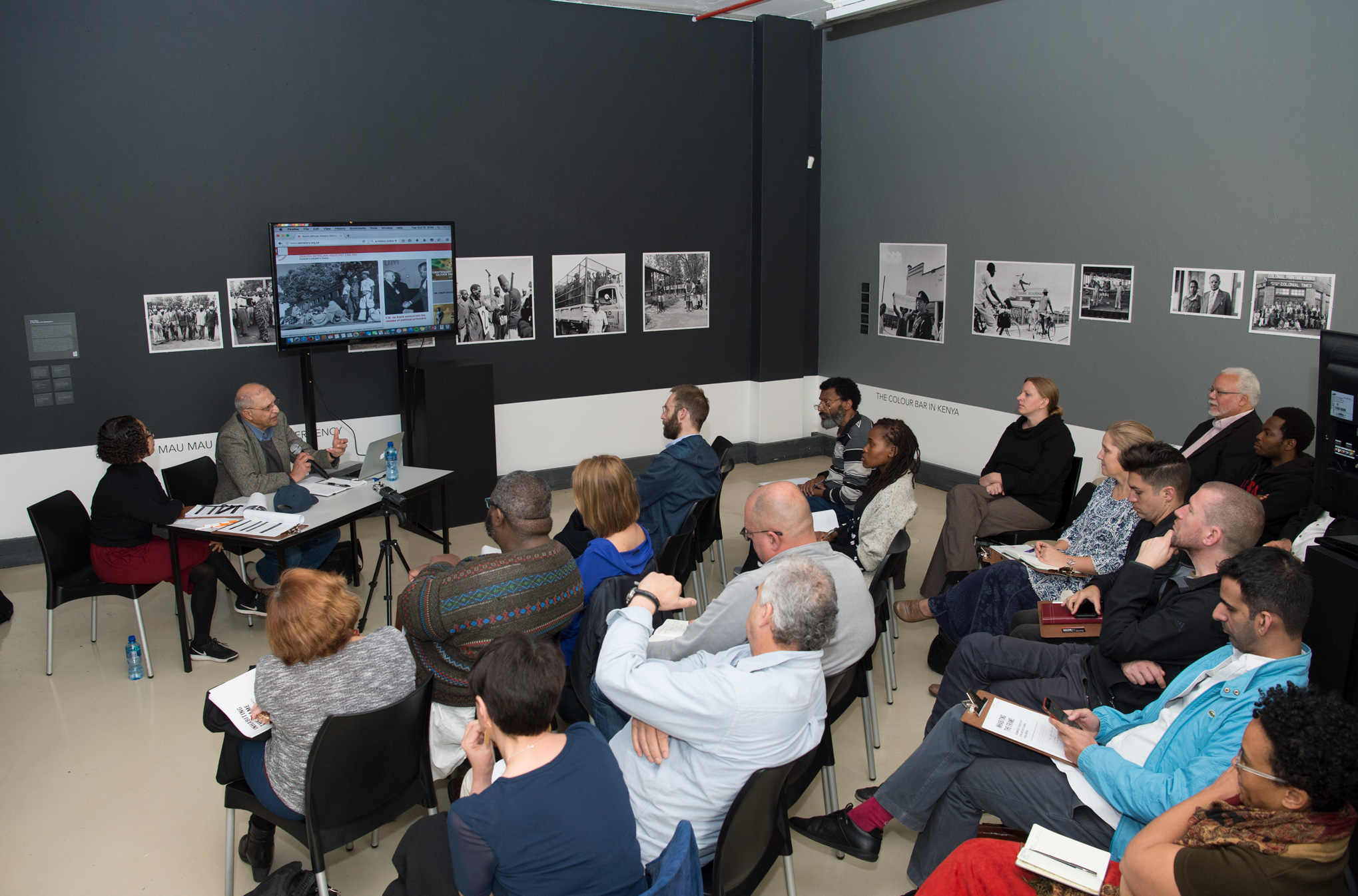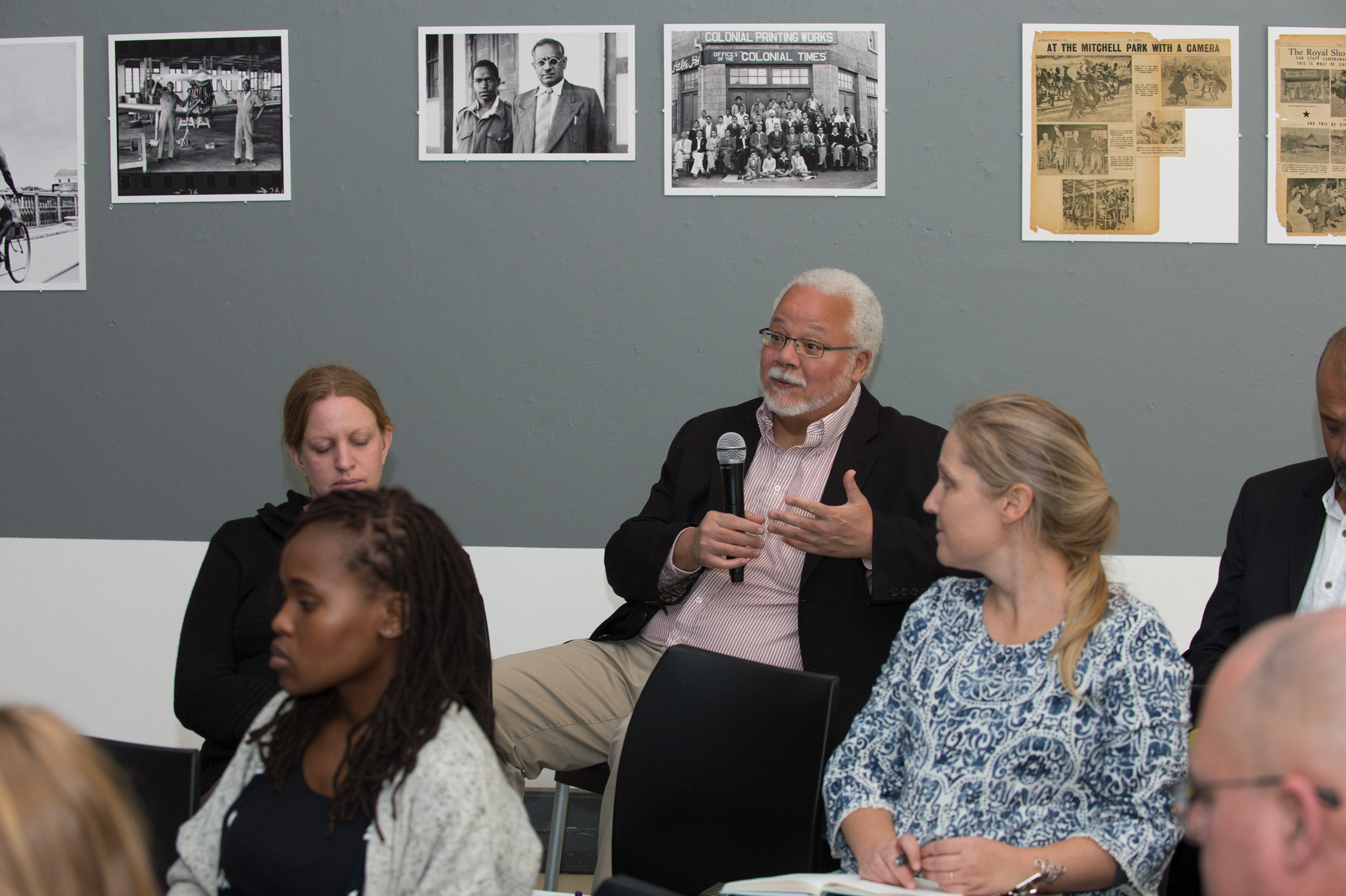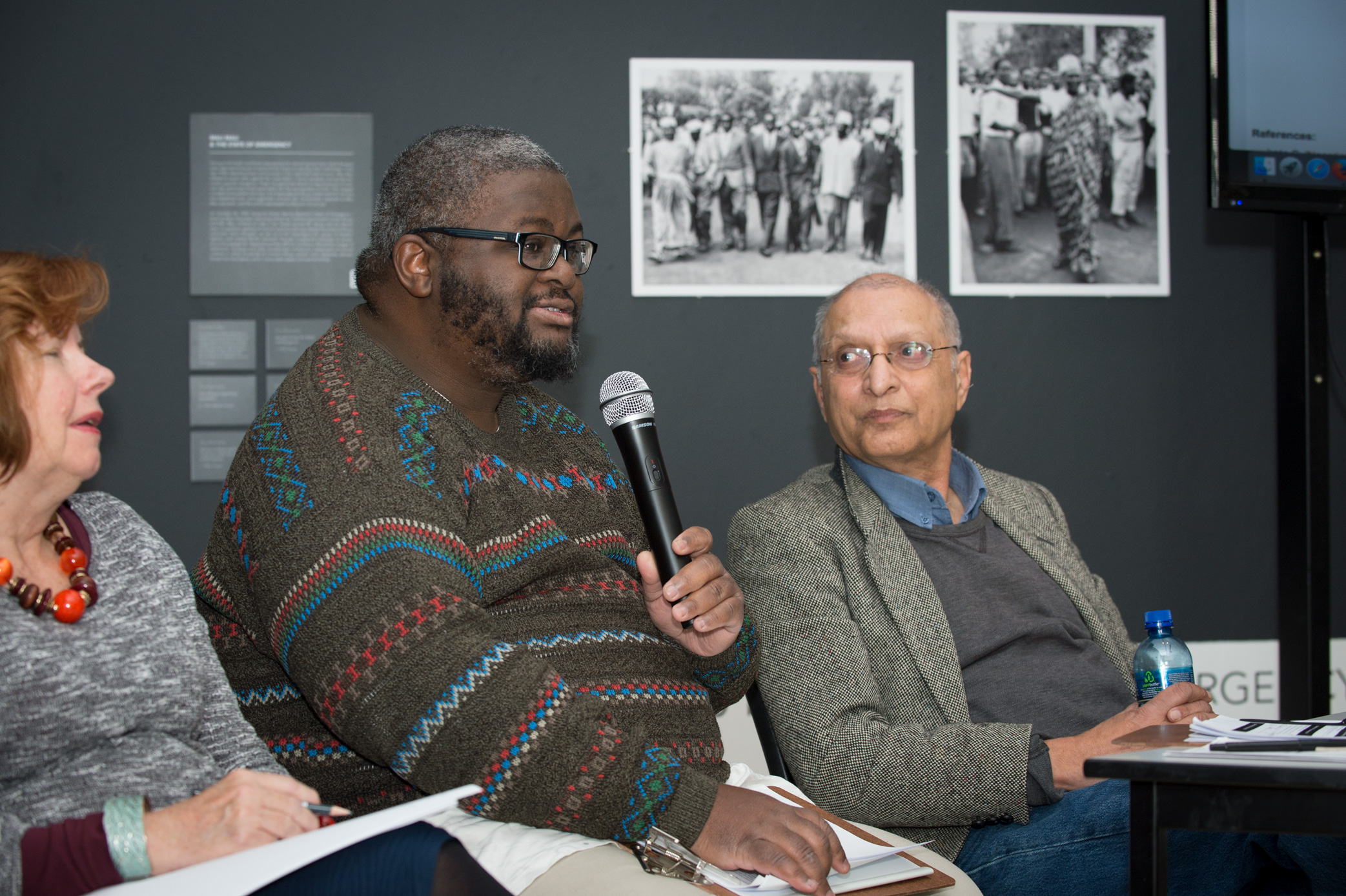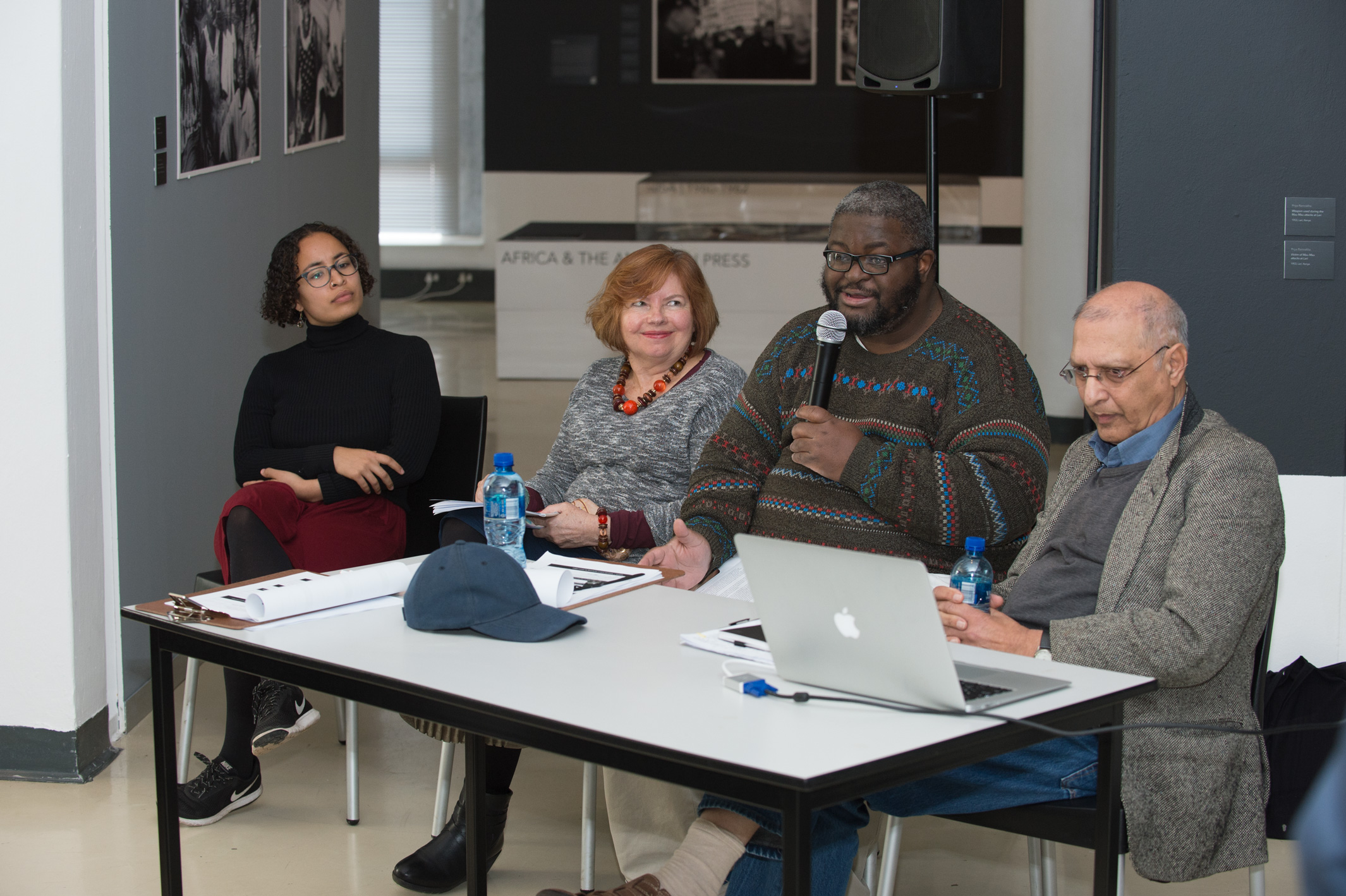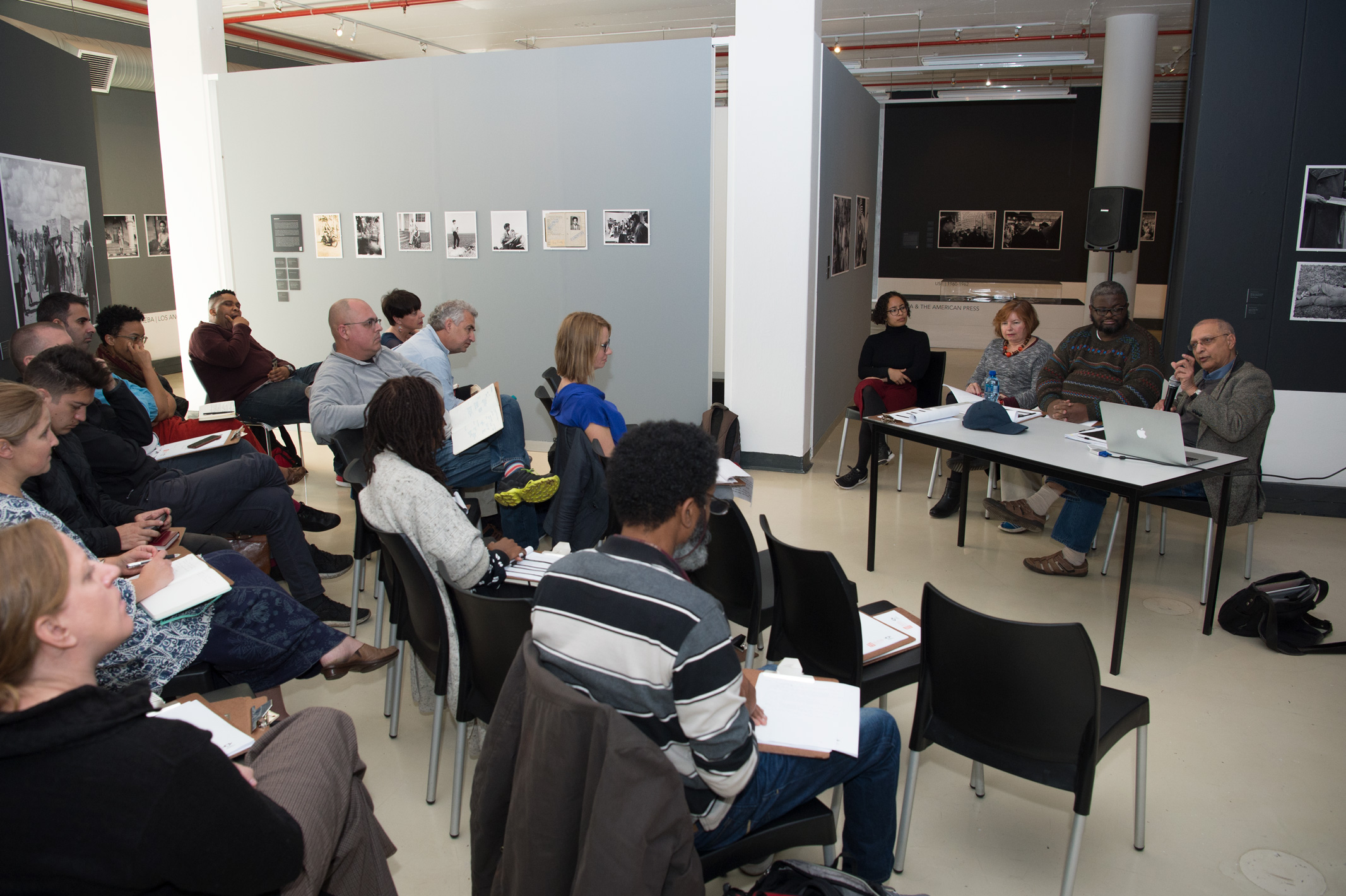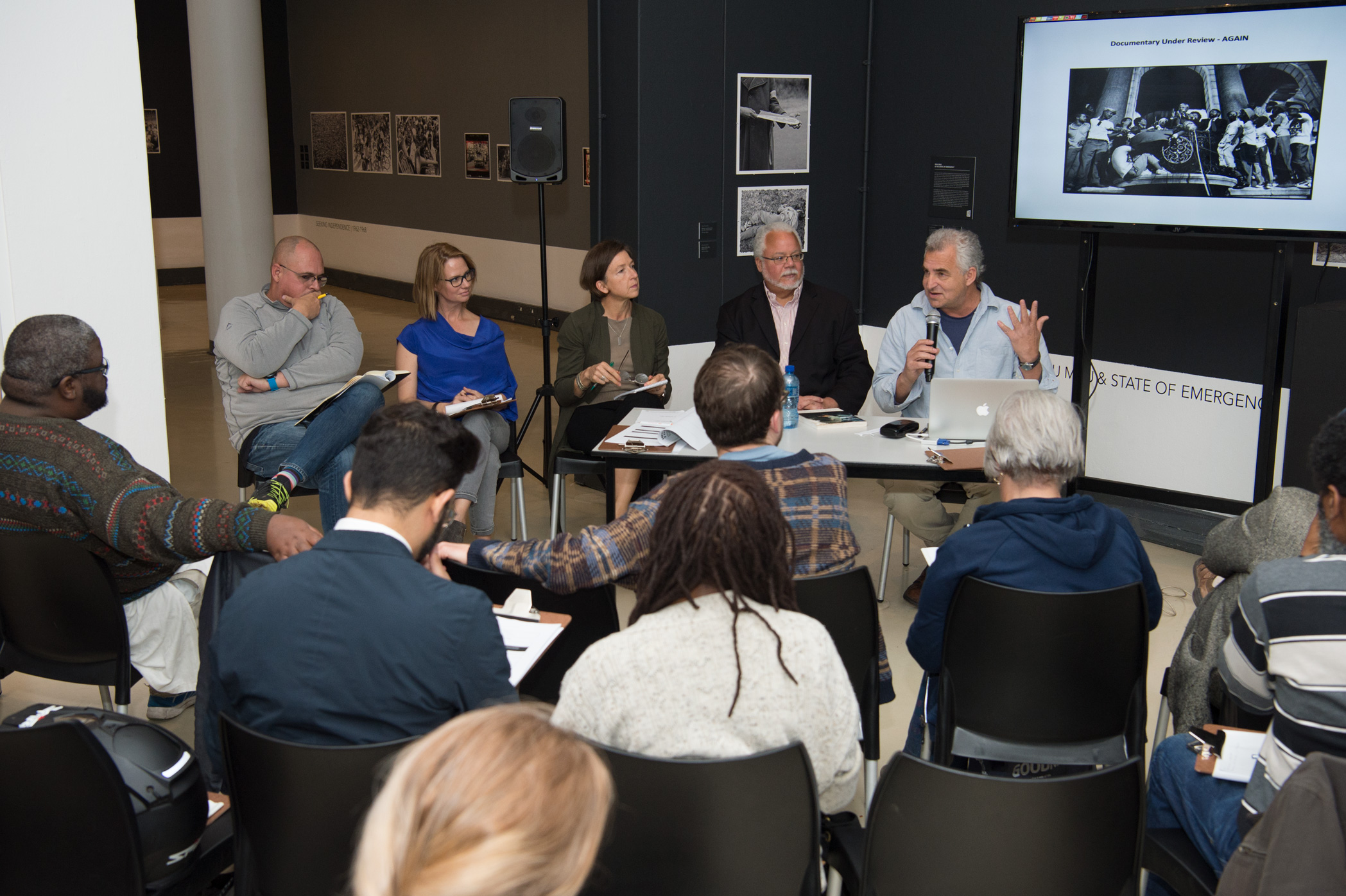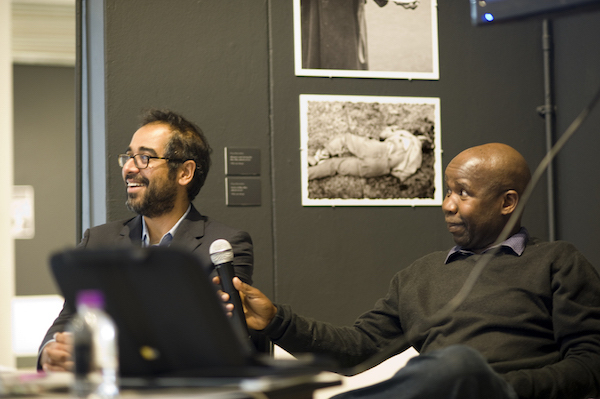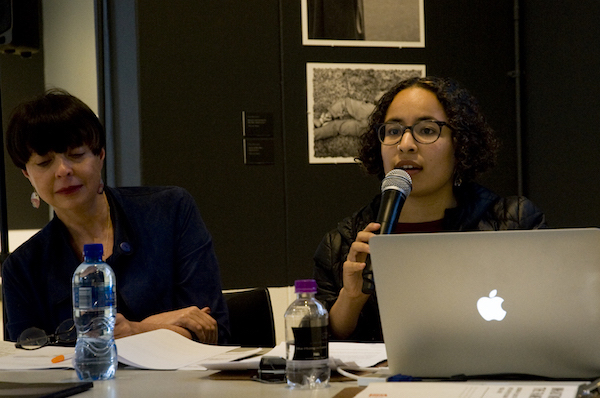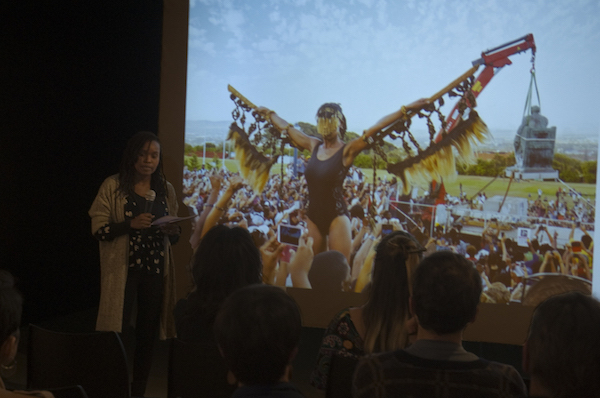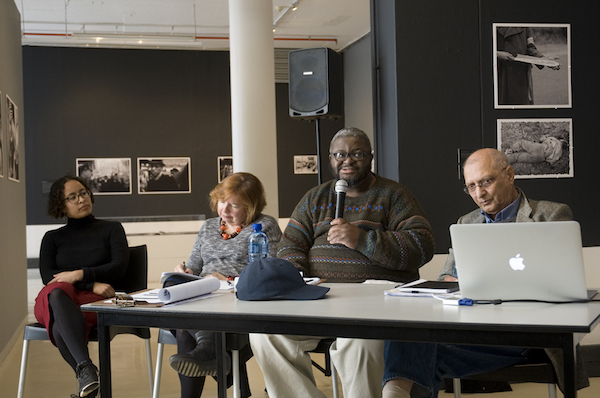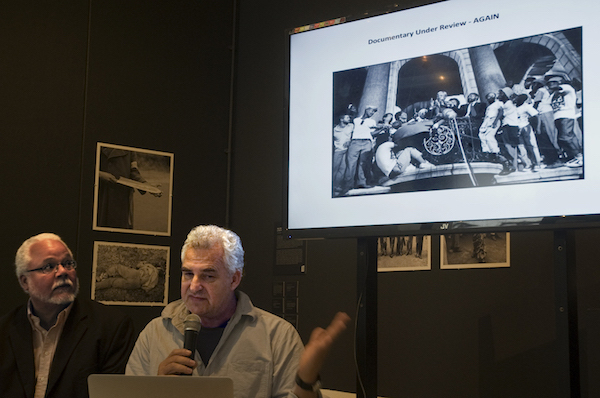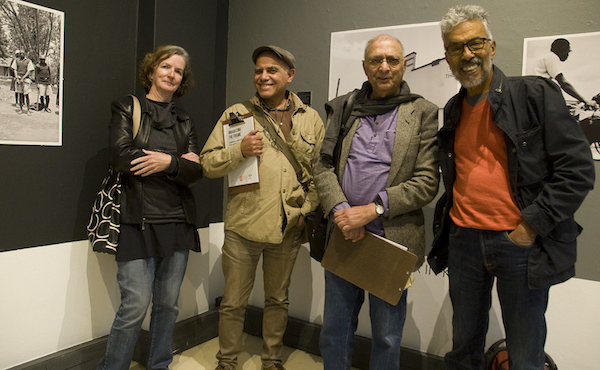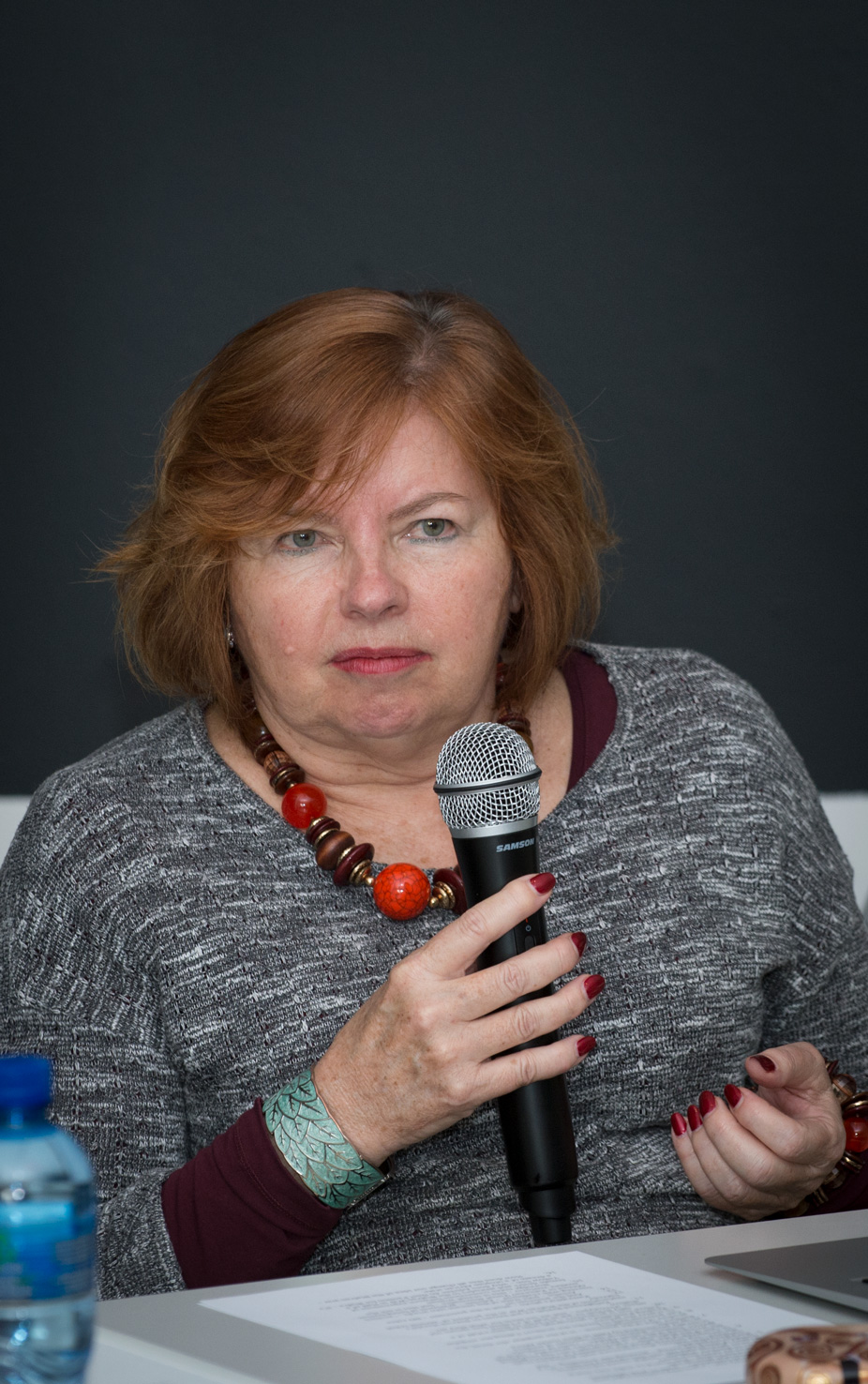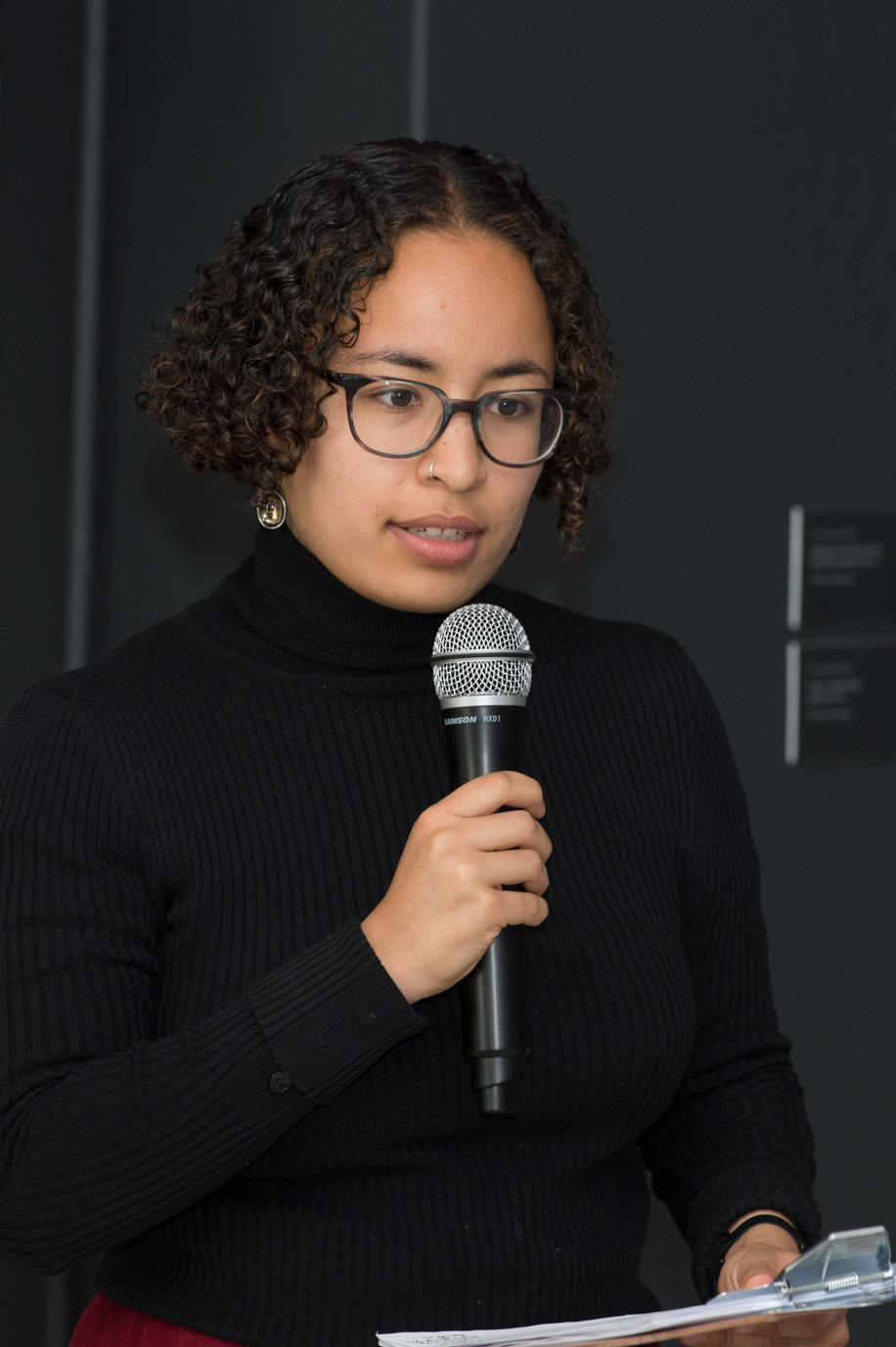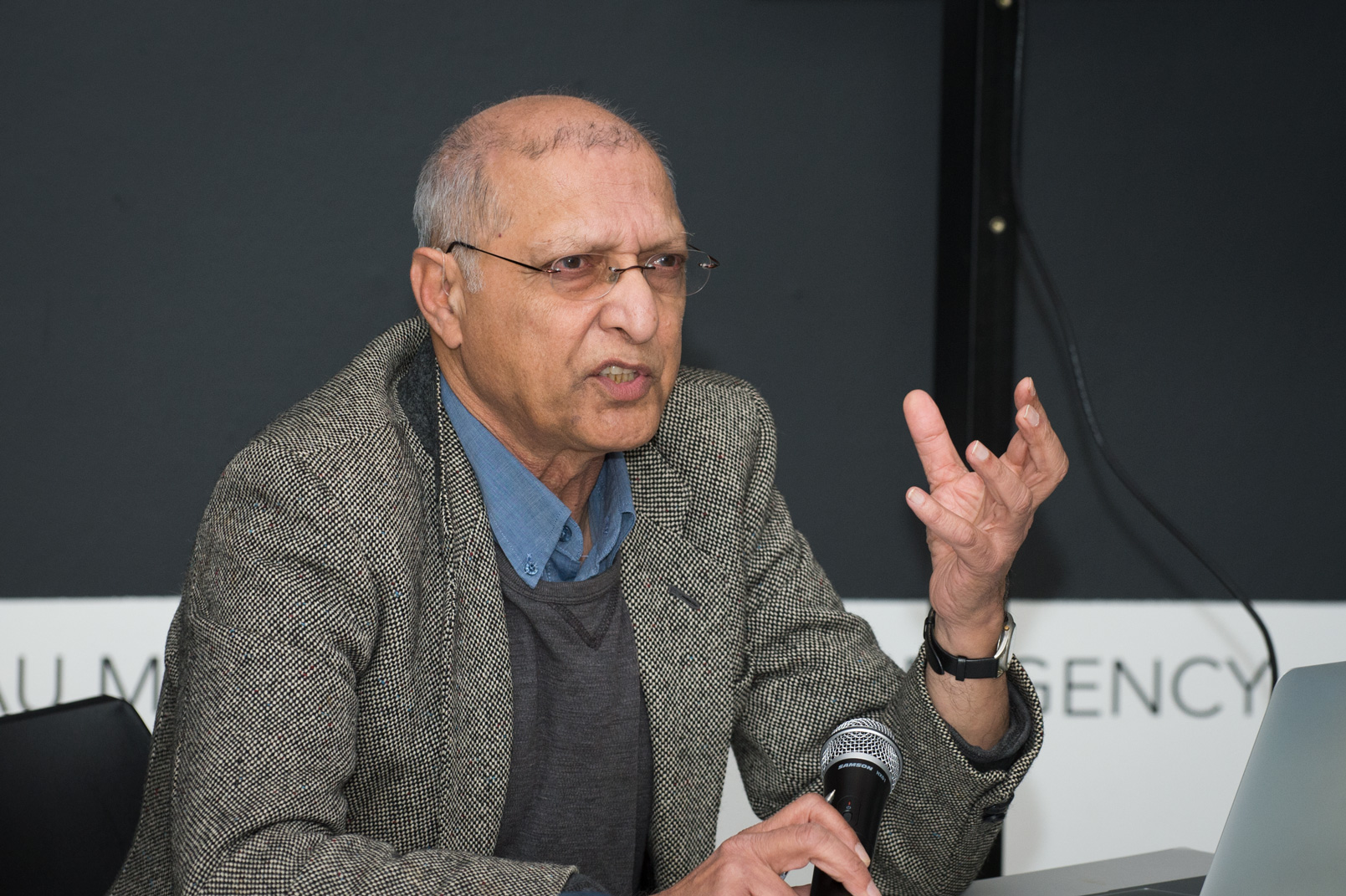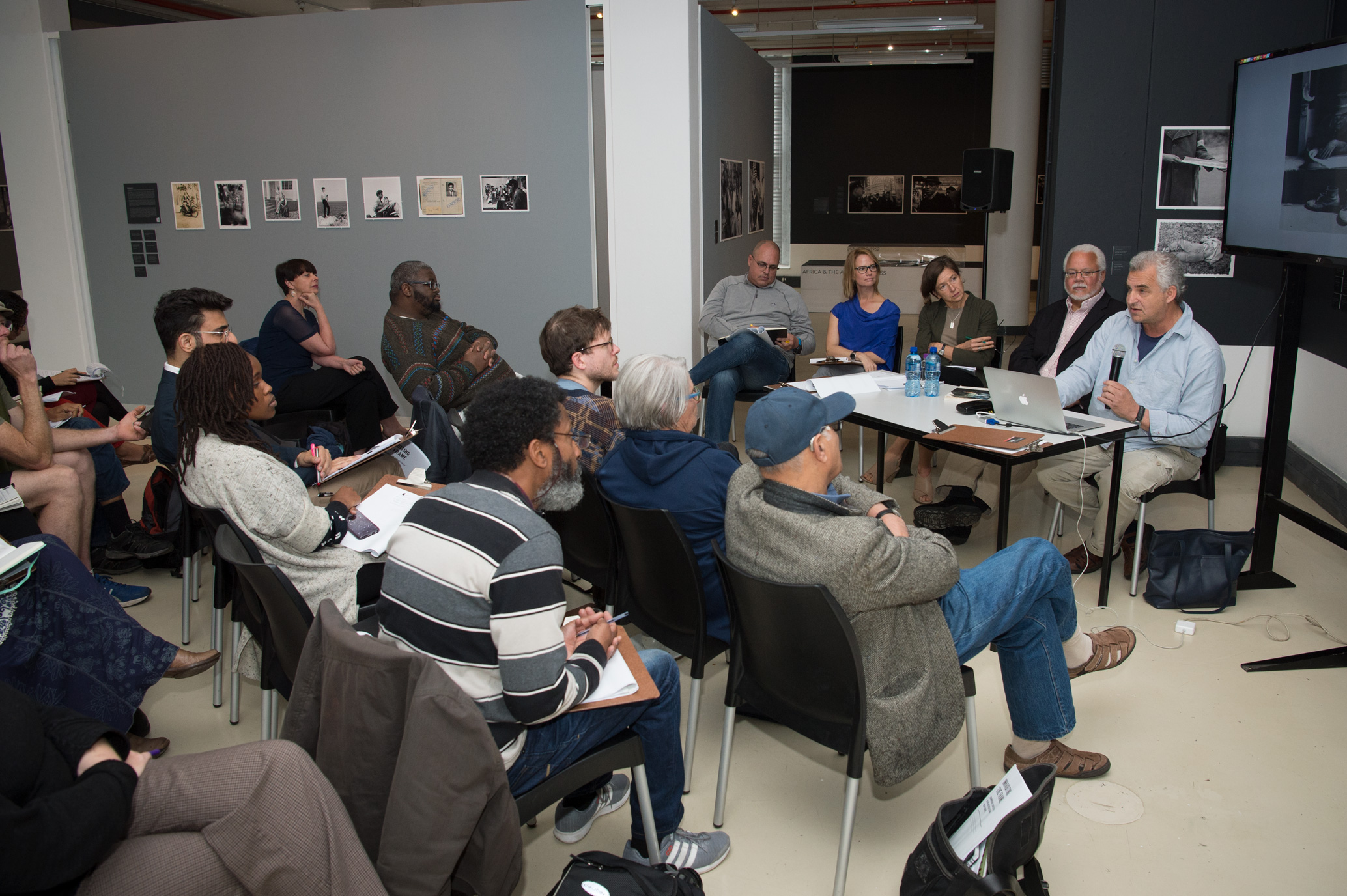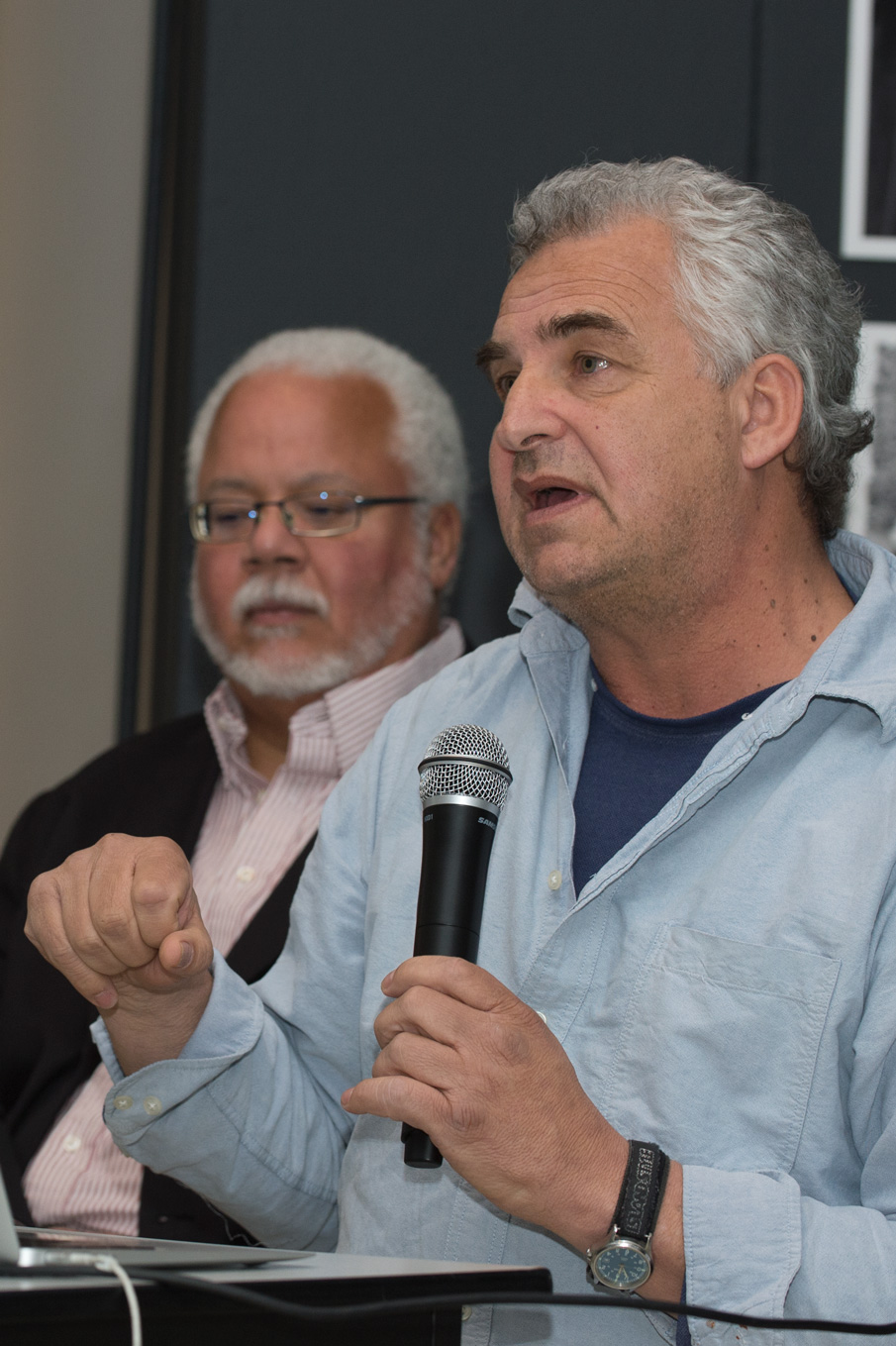INHABITING THE FRAME
DOCUMENTARY & SUBJECTIVITY IN THE ANTI|POST|COLONIAL VISUAL ARCHIVE
9 October - 1O October, 2017 | FADA Gallery, University of Johannesburg
Responding to the exhibition, Priya Ramrakha: A Pan African Perspective, 1950-1968 (FADA Gallery, October 2017), conversations in the colloquium engaged with questions of agency, subjectivity and the implicit politics and 'ethical demands' of photo-documentary in relation to anti-colonial and postcolonial struggles in Africa.
Session 1: Priya Ramrakha: A Pan African perspective, 1950-1968.
Session 1 focused exclusively on the exhibition - including an exhibition walkabout with curators Erin Haney and Shravan Vidyarthi, as well as a screening of the documentary, African lens, the Story of Priya Ramrakha
Session 2: Inhabiting the Frame: anti-colonial photographic chronicles
Following a presentation by John Edwin Mason on the role(s) played by LIFE magazine in shaping post-WW2 American perspectives on Africa, Session 2 centred around the diverse practices and associated politics of African photographers engaged in the visual chronicling of anti-colonial struggles, as well as independence and post-independence experiences on the continent. Further presentations were delivered by Pamila Gupta and Patrica Hayes.
Session 3: Photography in Context: Critical engagements with contested histories
Session 3 began with a presentation by documentary photographer Peter McKenzie, in which he discussed the History of African Photography lecture series - an online initiative launched in early 2017. Following this, VIAD Research Associate Natasha Himmelman, Prof Dan Ojwang (African Literature Dept, Wits) and Shravan Vidyarthi (co-curator of the exhibition, Priya Ramrakha: A Pan-African Perspective 1950-1968), reflected on Ramrakha's practice in relation to its East African cultural and political context, as well as to contemporary political developments and dialogues.
Session 4: Focal Depth: spaces & traces in the ‘post-colonial post-apartheid’ photographic archive
With presentations by Khwezi Gule (Chief Curator at the Soweto Museums), Omar Badsha (Photographer and Director of South African History Online) and Cynthia Cross (Research Associate at the Wits History Workshop), Session 4 engaged in different ways with the ethical/political imperatives and critical value of revisiting, rethinking and re-inscribing photographic archives in post-colonial/post-apartheid contexts.
Session 5: Empathy and After: crisis photography and the crisis of photo-documentary
With a panel including Rory Bester, Erin Haney, John
Edwin Mason & Paul Weinberg, discussions in Session 5 tracked and (within a specifically postcolonial frame) critically reviewed the ‘ethical impulse’ and western liberal/humanist agenda often associated with traditional or ‘high’ photojournalism – as vested in a commitment to veracity; to the capacity of the photographic image to make distant suffering ‘present’; and to invoke empathic response and civil action. Complicating this narrative, panelists reflected on ways in which this presumed model was disrupted through multiple, individual and differently located photographic practices (particularly with respect to the intersecting politics of race, class, gender and sexuality). Extending this dialogue, consideration was also taken of the multiple flows and functions of photo-documentary today – in relation to specific geographies and socio-political contexts; shifting perceptions of the power-relations and social contracts of photography itself; the role of the media (as fourth estate) vs. propaganda and now ‘fake news’; as well as important developments in photographic technologies, and the extent to which these are effecting the ways in which photographs are taken, tweaked, posted, shared, searched and tagged.
Session 6: Memory and the Archive: alternative documentary practices
Acknowledging the linearity and patriarchy that often attends 'heroic' narratives of political struggle, Nationalism and Independence, Session 6 began with an overview of the history, projects and archives of Gay & Lesbian Memory in Action (GALA), delivered by GALA Director Keval Harie. Following this, and drawing on the photographic archive of Kewpie of District Six, GALA Archivist, Linda Chernis, spoke to the necessary work of revisiting and re-presenting visual chronicles of marginalised queer narratives, experiences and histories in South Africa. This dialogue, and imperative, was extended to the institutionalised homophobia of East African countries like Uganda, by Geoffrey Ogwaro of the Centre for Human Rights, University of Pretoria.
COLLOQUIUM PROGRAMME
Click here to download
Photographer and former Afrapix member Peter McKenzie passed away on Friday 13 October 2017, just two days after presenting a thought-provoking paper on teaching the history of African photography, at the 'Inhabiting the Frame' colloquium. On behalf of all those who participated in the colloquium programme - many of whom were personal friends and colleagues - VIAD would like to acknowledge Peter's warm and generous personality, as well as his seminal contribution to photographic practice and pedagogy in South Africa.

